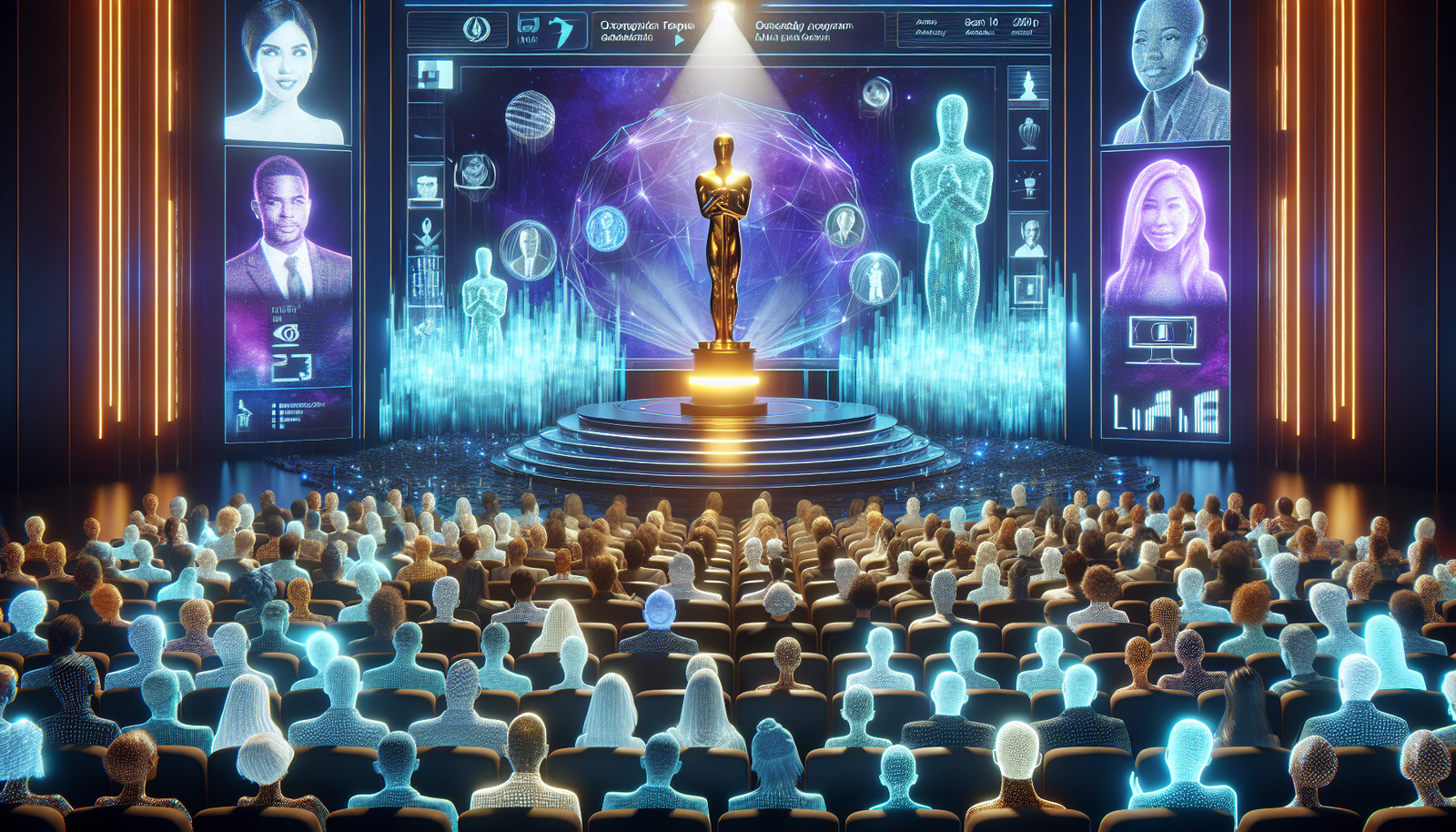The Oscars, emblem of global cinema, have just instituted an unprecedented rule. Every member of the Academy must now view all nominated films in a category before voting. Thus, the repercussions of this decision are sparking intense debates within the industry.
A plethora of varied reactions has emerged, culminating in a re-evaluation of past choices. Iconic films have been overlooked for no apparent reason. The specter of misjudgments and votes based on a narrow perspective is concerning.
This reform raises the issue of equality of opportunity. Voters must now immerse themselves in each work, thus ensuring an informed and grounded judgment. The echo of online comments reflects a collective impatience towards the historic voting process of the Oscars.
An obligatory viewing rule
The new directive instituted by the Academy of Motion Picture Arts and Sciences stipulates that all members must watch the entirety of the nominated films in each category before voting. This measure aims to strengthen the legitimacy of the Oscars’ results, a change widely praised by critics of the previous system.
Reactions from the public
On social media, many voices have risen to express their astonishment at this requirement. Many are questioning the past validity of the Academy’s decisions, suggesting that some films did not receive the deserved attention due to the lack of complete viewing. Comments on X reflect a general feeling of frustration, with users wondering: “Did they really vote just on impressions?”
The question of voter engagement arises, with some noting that it was unthinkable that the voting process had been so lax. Cited examples include films such as The Color Purple and Malcolm X, which could have benefited from greater recognition had the voters actually taken the time to watch these works.
Concerned cinema practitioners
Directors, actors, and other professionals in the field are showing interest in this new rule. Olivia Colman, for instance, had expressed reservations about voting without prior viewing of the films. Her commitment to not vote for an overlooked film reveals a professional ethic that many wish to see respected.
The Academy has also taken into account the various factors that influence the reception of films. The clarification on the role of artificial intelligence in the filmmaking process is also drawing attention. Films like The Brutalist and Emilia Pérez have sparked debates on the interaction between AI and traditional storytelling, raising concerns about their impact on the industry.
Theoretical consequences
Industry observers anticipate that this initiative could change the way films are perceived and evaluated at the Oscars. The recent implementation of similar measures by the British Academy in response to criticisms about the underrepresentation of minorities emphasizes this trend toward greater accountability among voters.
To enhance inclusivity, the Academy has also expanded the international film category to include filmmakers with refugee or asylum status. Such progress demonstrates a willingness to encourage diversity not just in front of the camera, but also behind the scenes.
Increased transparency
The new regulations aim to establish a climate of transparency to ensure a fair voting process. Academy members will not only need to view all the nominated films but also commit to watching a random selection of films during the first voting phase. This could increase the diversity of choices within the nominations.
Over the years, voting practices have often been questioned. Previous incidents, where voters had not viewed all the competing films, highlight the necessity for this change. Considerations surrounding AI in cinema, just like the critique of the past, encourage voters to empower themselves to judge based on fairer criteria.
FAQ on the new mandatory viewing rule for the Oscars
Why did the Oscars institute a mandatory viewing rule for voters?
The new rule was implemented to ensure that all Academy members have seen all the films nominated in each category before voting, thereby ensuring a fairer evaluation of the works.
What are the specific criteria for members to vote at the Oscars?
Academy members must watch all the nominated films in each category to be eligible to vote in the final round of the Oscars.
What has been the public’s reaction to this new rule?
Many people have expressed their surprise that this requirement was not already in place, highlighting doubts about the validity of the Academy’s previous decisions.
Are there any penalties for voters who do not adhere to this viewing rule?
Currently, there are no strict enforcement measures, which could allow some voters to abstain in categories without following this directive.
What changes have been made to the categories to which this rule applies?
The rule applies to all film categories, including international films, and aims to include directors with refugee or asylum status.
How does this rule impact the diversity of awarded films?
By requiring voters to watch all films, the goal is to promote a more equitable and diverse representation in nominations and awards.
Is this rule inspired by other awards like the BAFTA?
Yes, this initiative is inspired by the strict rules implemented by the BAFTA, which mandated mandatory viewing for their voters in response to the #BaftasSoWhite controversy.
What additional measures were announced alongside this rule?
In addition to the viewing rule, the Academy clarified that the use of artificial intelligence in film production would neither influence nor harm submissions.






